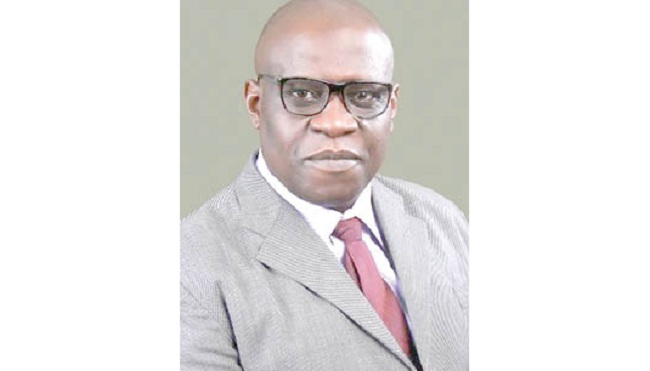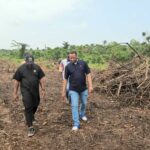Dr Shaibu Husseini is a celebrated Nigerian journalist, performing artiste, cultural administrator and film scholar. Recently, he was appointed the new Director-General of the National Film and Video Censors Board (NFVCB) to the delight of stakeholders in the industry. Speaking to journalists at the Lagos office of the NFVCB, he revealed his plans for the board, moving forward. ROTIMI IGE brings excerpts of the interaction.
Tell us about coming into the NFVCB as Director-General.
If you have followed my pattern since the time I started moonlighting for The Guardian, one of the agencies that I covered was the National Film and Video Censors Board (NFVCB). I have written extensively about their policies, what they do and what they are expected to do, so my appointment is an opportunity to do all I have written about.
I took over a board that has about 465 staff, with six zonal offices, and 26 state centres. The staff are passionate, dedicated, and willing to work; all they need is some form of leadership and for some, an understanding of what the board is supposed to do.
One of the things that I think works for me is the fact that most of the issues that I knew were challenges of the board were issues that I already knew about. So, my coming to the board is to find a way to solve the problem.
What would you say is your mission here at NFVCB?
Ultimately, I have come to the censors board with my management staff to make sure that we run a very responsive censorship organisation. One that is responsive to stakeholders, society, and the government that set it up. The board will be 30 years old in June, we started operations in 1994 with Pa Demola James, and we have had four other Chief Executives before me, I am the sixth. So, in June we will have our 30th anniversary.
In June, we will present three publications to the public, each one to mark 10 years of the censors board. This is also because of the cry for data. We have received information from universities, both local and foreign asking us for films that have been classified and other information. These publications will contain information on all the films that have been classified from 1994 till date. It is for documentation and it will outlive us. Hopefully, we will have a big celebration if by that time we have moved to a new headquarters in Abuja. The current one is a rented apartment we have been using since 1998.
My idea of the headquarters is a place where we can celebrate the stakeholders that have brought their films there to censor. We will have something like a ‘Walk of Fame’ where names and photographs of people, both living and dead would be there. But you cannot do that in a rented apartment. I have made a proposal to our listening minister, Hannatu Musawa, the Minister of Art, Culture and the Creative Economy of Nigeria. She has said that we will move out of that place and get a space that will be christened ‘The Classifier’. My dream is for us to move to ‘The Classifier’ and present a place we can call a house of film and creative content.
Now that you are here, what is your action plan?
The first thing that I did was to ensure that we look at the problems and see how we can eliminate them. So, I have started a cross-section of engagement with the industry, just to let them know that this is what I have in mind, which is to build a world-class classification centre.
We need to think more about classification than censorship. What has angered most of our stakeholders and kept them away from the board is this issue of censorship.
Why is this important at this time?
When I checked all around the world, I discovered that they have moved from censorship to classification. Even in Britain, it is the British Board of Classification. In Kenya, it is a classification board, the same thing in South Africa. This is why I believe that there is a need for us to move from the regime of censorship to classification. So, I sat with my management and we agreed that it was time for us to move from censorship to classification.
What is the difference?
Classification is when we watch your content and we give it the rating that it deserves. That rating will be displayed on the content so that when the audience is watching, they will know which content to choose from, instead of just watching general content and you’ll find something more like violence or nudity in the middle of the film. When classification is done properly, you will have rating on all content. In our new regime of classification, we are going to classify skits, short video content, and films. We must make those clarifications now because the board was set up by law to classify any video content produced in Nigeria or imported into the country for exhibition.
What are the other things in your plan?
The second thing that we have agreed to do is that we need to move with the age we are in now from analogue to digital. Until last Saturday, I had my byline in The Guardian, yet I have not been to The Guardian physically in about 10 years. I do it all virtually. We should no longer be doing analogue at a time when we should be talking about digital, and we have agreed to digitise the process.
I found out that one of the reasons people are bypassing the board and releasing films without classification is because of the tedious process of getting your films on DVD, then you bring it to the board, they will then constitute a panel that will sit, and once it is 4 p.m, they leave whether the work is done or not. The filmmaker then waits till another day they meet and the cycle continues.
But in the digital space, there is this thirst for content. If a man produces a film and plans to release it on Friday, if he brings it to the board on Monday, he expects to get his reply by Wednesday so that he can upload his film.
For this reason, we have decided that we must commit ourselves to providing a service that will be convenient for the filmmakers to stay in the warm comfort of their homes, upload their films, pay online, see how the film is being processed, and then print their certificates online. If they now want a physical certificate, they can come to the zonal office. But the certificate they print online will suffice. We invested in a system that allows you to do that. and before the end of this month, we will get that deck working. This means that wherever you are, you do not have to physically come to the board. There are people internationally who want to classify their films, and they now have to begin to use agents and all that. No, it is not necessary anymore, especially with the way contents are produced now. All of us are content producers, and we can stay in our homes and produce the content, we do not need to burn it to a CD or put it in a flash drive – a link can solve that, and you put it on our deck and also put in your card details to pay. Once it is all verified, your movie is classified, you get your approval, and you print your certificate. What we are trying to achieve is zero interference, except if there is a need.
This brings me to the next part of our plan. One of the things with enforcement is that you must get your stakeholders buy-in. If stakeholders are responsible as filmmakers, we will not have any need to enforce anything. If they know that we frown against nudity or content that will divide us as a people, or anything that will threaten national security, or make Nigerians or Africans look less, then they will leave it out of their content. What we need is content that does not glamourise crime, ritual killings, or things that give us mad names internationally – we frown at these things.
The third thing that we are doing is to ensure that we carry out media literacy. When I took over, I centralised media literacy and made a department responsible for it. This is to educate the young minds being corrupted daily about the things that they can watch on social media or avoid.
It is also to educate our parents and teachers on what they can do to protect the average child. What they watch and see registers in their minds, and as a parent, you have a responsibility. It is part of our mandate to go around and talk to them. As I speak, our centre in Abakaliki, Ebonyi State is having a media literacy programme. We have also agreed that on May 27, Children’s Day, we will have a nationwide media literacy programme that we will sustain. One of our flagship media literacy programme this year is the August meeting in the South East. We are going to meet our mothers and tell them to care more about what their children watch. We will show them images of what the children are watching, and also introduce them to software that will allow them to know what the children are watching even when they are not there.
One of the things we met on ground is the need to make our motion picture space smoke-free as is done globally. There should be minimal use of tobacco. We shouldn’t allow the use of entertainment to promote tobacco smoking. All over the world, film industries have agreed, and Nigeria is a partner to that agreement. If you must show a smoking scene in your film in an extended manner, you must put a warning that cigarette smokers are liable to die young. We are launching that campaign later this month during the World Tobacco Day celebration.
How do you handle contents that are on streaming platforms?
This is part of my engagement with platforms. We must not be removed from the process of making sure that we can report some content. They were not doing it before, but a lot of them have now committed to it. I have met with a number of these platforms, we must have a deck where if we see content that is so abusive and not supposed to be on we can quickly flag and take it down. We are in a very fragile moment in our country, and some things set countries apart that we do here, yet the country remains together. If we continue to aid those activities, this country will go down. This is why we need classification. We are not saying we cannot make content, we will just restrict what is inappropriate for general viewing. It will be for a category of people to watch.
Our digitisation of the process is also not about revenue, because some may think it is an opportunity to take money from skitmakers and the rest. No, it is about data. In March, we sent out a press release saying Nollywood produced 274 films. That is a lie, it is because people are not bringing their films for classification. Nollywood can’t do 274. I know one lady in Asaba who does seven films in a week. It may not be the best film, but the data is still important because we must not drop our rating as the second-best film-producing society. If we begin to post these kinds of figures that are not the true reflection of production, we may come down to as low as 100 on the radar if UNESCO decides to do another survey. This is why we need accurate data.
The reason they are not taking our industry seriously is data. The reason people talk about music is that when you can fill the O2 Arena in London as an artiste, people can see the numbers of those who attend. But people can’t take our film industry seriously when we are posting wrong data. This is another reason we are digitising, both for data and as revenue for the government.
Also Read: IPAC President calls for scrapping of state electoral commissions






